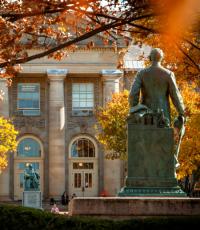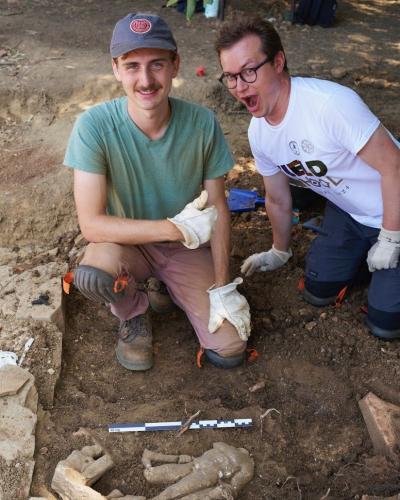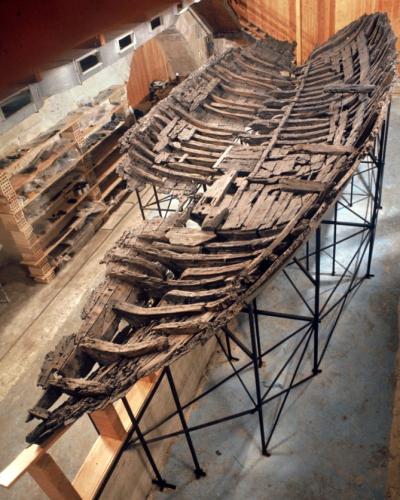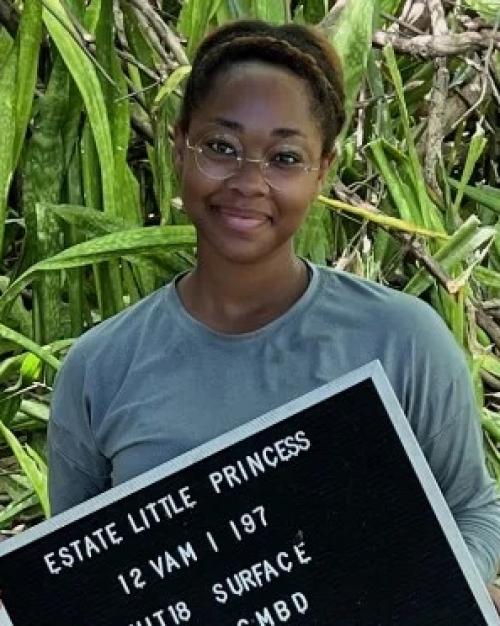Every summer, Cornell graduate students travel the globe to conduct field research. This story is the first in a series about graduate student summer field work. MyKayla Williamson, pictured above, is a master’s student in archaeology whose summer research focused on the archaeological excavation of a historical sugar plantation in St. Croix, U.S. Virgin Islands.
Describe the location of your summer research.
This archaeological excavation takes place on Estate Little Princess, a sugar plantation on St. Croix, U.S. Virgin Islands. People of African descent lived and worked on this plantation starting in circa 1740.
What’s the focus of your research?
Our focus is on expanding on the village’s known ruins that enslaved and free laborers starting in the 1740s, when the plantation was under Danish control. Using shovel test probes and excavation units, we investigate the daily life of the otherwise marginalized workers and how they utilized the space of their village to practice place-making, belonging, work, clandestine leisure and craftsmanship.
What do you hope will be the impact of this work?
First, this work should allow the citizens of St. Croix to develop a deeper understanding of daily life of their ancestors and the individuals that lived on the land historically. More broadly, this project also concerns Danish citizens as many of the bricks, ceramics and other items that are being unearthed in the material record speak to Danish plantation dynamics during the latter half of the 18th century. This is a history that America inherited with its purchase of St. Croix. The last sugar harvest took place in 1966, speaking to continuity under the various countries that took leadership of St. Croix.
How will summer research advance your understanding of your own research in a way that classes or theory does not?
Archaeology can only be done in the field, away from textbooks, papers and quizzes. In class, we learn types of ceramics, theories and frameworks. The knowledge means nothing unless we apply it to the actual materiality that is being unearthed.
What has surprised you about your experience?
I am delighted to be able to witness how Crucians remember and celebrate their own history that I am adding to by uncovering. The work that I do and the materiality that I uncover directly help the understanding surrounding daily life, resistance, survivance and community. Interacting with and learning from the descendant community whilst also actively adding to their wealth of knowledge is a unique experience.
How did Cornell programs and/or faculty mentors help connect you with the opportunity to carry out summer research in St. Croix?
My academic advisor, Sherene Baugher, connected me with one of the primary investigators for this ongoing project! After speaking with the principal investigator during their campus visit, we continued exchanging ideas about the interconnectivity of their project and my thesis and we decided that this opportunity would further the skillset I needed to carry out my master’s thesis that concerns community-engaged archaeology.
What would you say to students considering applying to Cornell for grad school?
Cornell contains a wealth of knowledge. I truly believe it hosts the ability to be able to foster pathways for any person within any study.
Read the story in a Medium post by Cornell University Graduate School.






